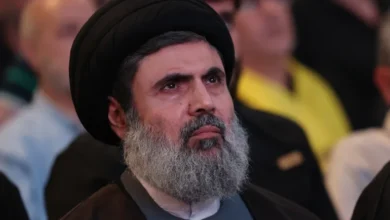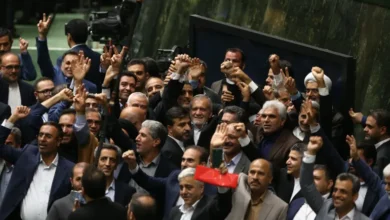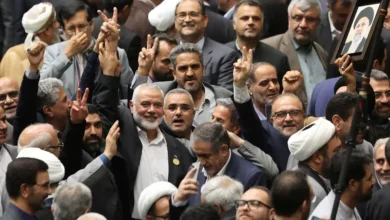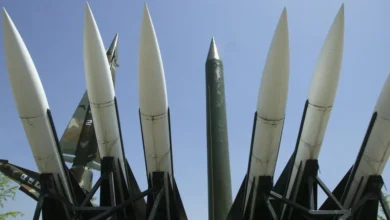The India-Pakistan War and Its Version in Palestine: A Colonial Creation
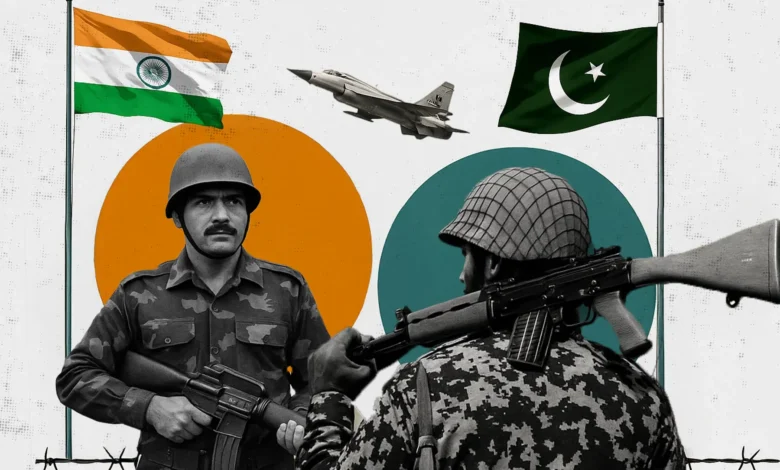
The India-Pakistan war has subsided but not ended—it will likely persist across future generations and perhaps, indeed certainly, for centuries to come. This is similar to what is happening in occupied Palestine, where both conflicts were crafted by colonial powers to ensure that these regions remain zones of fierce conflict, claiming thousands of lives and constantly destabilizing their surroundings.
The British colonialists engineered the Kashmir region, dividing it among various sects and religions to keep it as a ticking time bomb—an ever-active volcano that erupts periodically, sparking conflicts, wars, and a nuclear arms race that threatens both the region and potentially the world. The same was done in Palestine, where Britain—backed by the United States—planted Israel, partitioning the land between Jews and Muslims. Since 1948, when the British handed over the reins to the Zionist militias and supported them in establishing their state on Palestinian land, the fire has never stopped burning.
Israel, with support from Western countries, exploited the events of October 7, 2023, to reshape the Middle East in line with its own plans, interests, and projects. The occupation forces, with direct Western—particularly American—backing, have committed massacres aimed at expelling and displacing Palestinians from their historic land. India has employed a similar tactic, using an attack in Kashmir to wage war on Pakistan in an attempt to redraw the regional map.
In occupied Palestine and the broader Middle East, Israel dominates militarily and in terms of security, having neutralized its enemies in Lebanon, Syria, and Gaza. Israeli Prime Minister Benjamin Netanyahu openly discussed redrawing the map of the Middle East to align with Western interests. The Al-Aqsa Flood operation became a convenient excuse. Similarly, in Kashmir, the armed attack that prompted India to open a front with Pakistan also served as a pretext for Western interference in Asia and among major global powers, aimed at redividing the region to suit their colonial ambitions.
Western nations were shaken by Pakistan’s rapid and covert acquisition of nuclear weapons—an achievement that became a source of pride for many Islamic and Arab countries. Some of these nations even leveraged this accomplishment in their negotiations with the West.
More importantly, Pakistan began to feel a greater sense of independence among global powers, enabling it to independently reach an agreement with China—the United States’ primary rival—to lay the foundation for a trade route from China to Pakistan and on to the Arabian Sea. This development threatens to divert economic advantages from the West—especially the U.S.—towards China, the industrial and commercial giant.
The West is now working to create security tensions and conflicts on both sides of the Chinese trade corridor that passes through Pakistan—a key station for its success. Such tensions are enough to derail any economic project, given the principle that “capital is cowardly.”
Western countries manufactured the India-Pakistan tension and continue to inflame it secretly, despite American claims of mediating to stop the war. However, as is often the case, the next phase is likely to involve Western recalculations to orchestrate a new conspiracy with New Delhi, while covering up the scandal surrounding Western arms manufacturing—highlighted by the failure of French Rafale fighter jets compared to Chinese-made aircraft acquired by Pakistan.
Another long-term goal of fueling this conflict is the potential to disrupt the BRICS and Shanghai Cooperation Organization blocs, in which both India and Pakistan are members. The hostility between these two members could fracture or even dismantle these organizations, allowing the European Union to dominate global markets after eliminating key competitors.
The alignment of goals between the Kashmir and Gaza wars is evident in Israel’s direct support for India’s stance against Pakistan. Netanyahu declared that New Delhi has the right to destroy Pakistan, labeling it an aggressor. The Israeli Prime Minister hopes that religious and sectarian wars will ignite anywhere they can, as a way to justify his aggression against Gaza and fuel broader conflict with the Islamic world—seeing India as the spearhead for executing this strategy.The India-Pakistan War and Its Version in Palestine: A Colonial Creation
The India-Pakistan war has subsided but not ended—it will likely persist across future generations and perhaps, indeed certainly, for centuries to come. This is similar to what is happening in occupied Palestine, where both conflicts were crafted by colonial powers to ensure that these regions remain zones of fierce conflict, claiming thousands of lives and constantly destabilizing their surroundings.
The British colonialists engineered the Kashmir region, dividing it among various sects and religions to keep it as a ticking time bomb—an ever-active volcano that erupts periodically, sparking conflicts, wars, and a nuclear arms race that threatens both the region and potentially the world. The same was done in Palestine, where Britain—backed by the United States—planted Israel, partitioning the land between Jews and Muslims. Since 1948, when the British handed over the reins to the Zionist militias and supported them in establishing their state on Palestinian land, the fire has never stopped burning.
Israel, with support from Western countries, exploited the events of October 7, 2023, to reshape the Middle East in line with its own plans, interests, and projects. The occupation forces, with direct Western—particularly American—backing, have committed massacres aimed at expelling and displacing Palestinians from their historic land. India has employed a similar tactic, using an attack in Kashmir to wage war on Pakistan in an attempt to redraw the regional map.
In occupied Palestine and the broader Middle East, Israel dominates militarily and in terms of security, having neutralized its enemies in Lebanon, Syria, and Gaza. Israeli Prime Minister Benjamin Netanyahu openly discussed redrawing the map of the Middle East to align with Western interests. The Al-Aqsa Flood operation became a convenient excuse. Similarly, in Kashmir, the armed attack that prompted India to open a front with Pakistan also served as a pretext for Western interference in Asia and among major global powers, aimed at redividing the region to suit their colonial ambitions.
Western nations were shaken by Pakistan’s rapid and covert acquisition of nuclear weapons—an achievement that became a source of pride for many Islamic and Arab countries. Some of these nations even leveraged this accomplishment in their negotiations with the West.
More importantly, Pakistan began to feel a greater sense of independence among global powers, enabling it to independently reach an agreement with China—the United States’ primary rival—to lay the foundation for a trade route from China to Pakistan and on to the Arabian Sea. This development threatens to divert economic advantages from the West—especially the U.S.—towards China, the industrial and commercial giant.
The West is now working to create security tensions and conflicts on both sides of the Chinese trade corridor that passes through Pakistan—a key station for its success. Such tensions are enough to derail any economic project, given the principle that “capital is cowardly.”
Western countries manufactured the India-Pakistan tension and continue to inflame it secretly, despite American claims of mediating to stop the war. However, as is often the case, the next phase is likely to involve Western recalculations to orchestrate a new conspiracy with New Delhi, while covering up the scandal surrounding Western arms manufacturing—highlighted by the failure of French Rafale fighter jets compared to Chinese-made aircraft acquired by Pakistan.
Another long-term goal of fueling this conflict is the potential to disrupt the BRICS and Shanghai Cooperation Organization blocs, in which both India and Pakistan are members. The hostility between these two members could fracture or even dismantle these organizations, allowing the European Union to dominate global markets after eliminating key competitors.
The alignment of goals between the Kashmir and Gaza wars is evident in Israel’s direct support for India’s stance against Pakistan. Netanyahu declared that New Delhi has the right to destroy Pakistan, labeling it an aggressor. The Israeli Prime Minister hopes that religious and sectarian wars will ignite anywhere they can, as a way to justify his aggression against Gaza and fuel broader conflict with the Islamic world—seeing India as the spearhead for executing this strategy.
